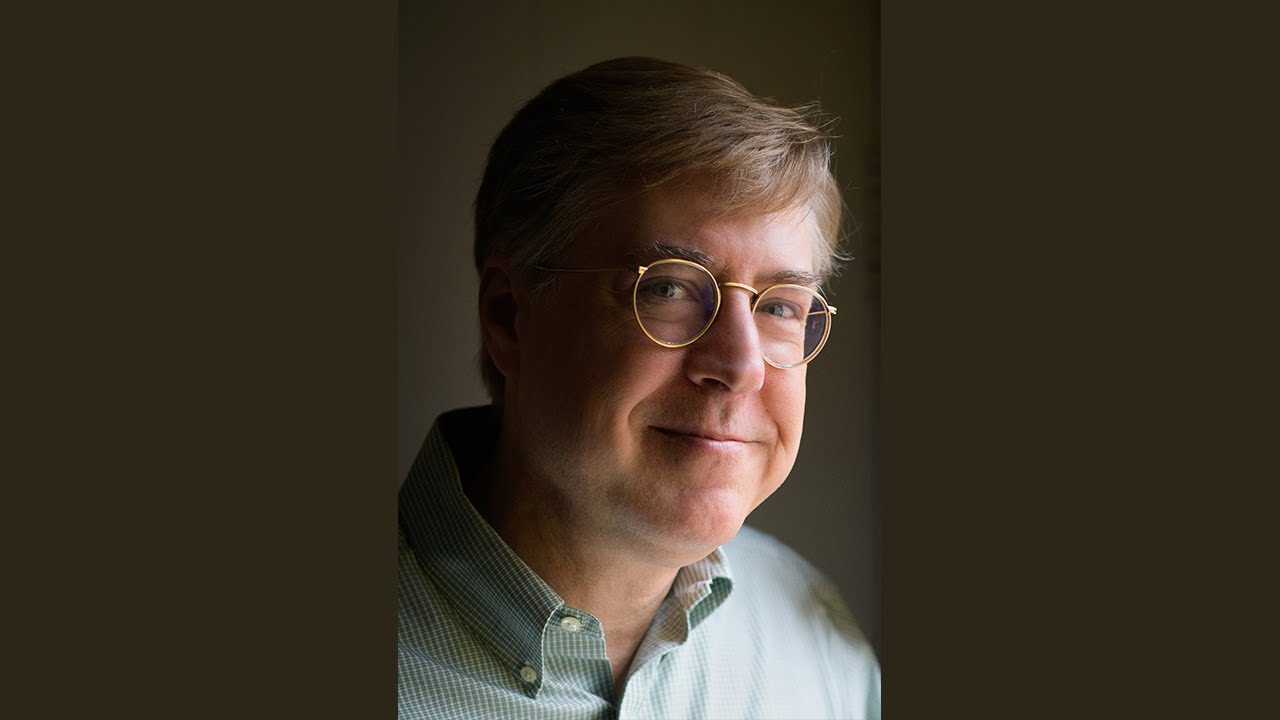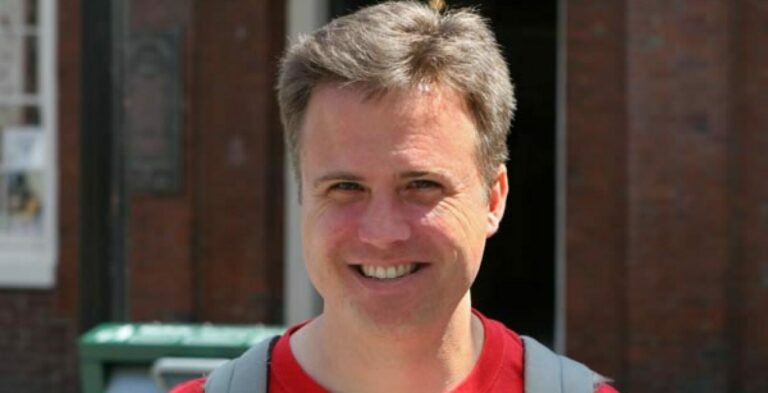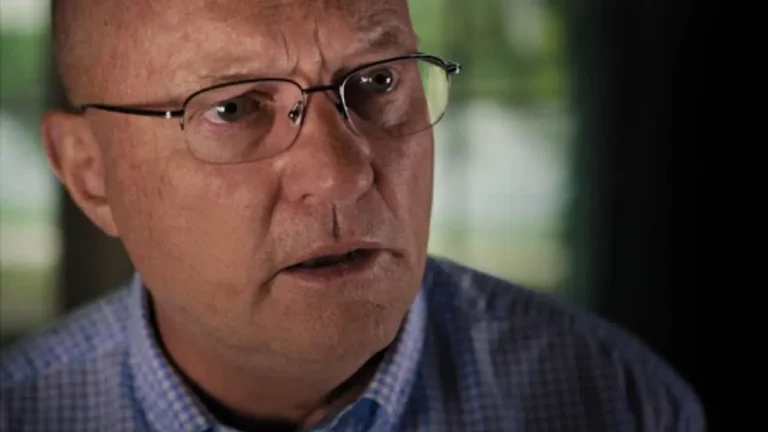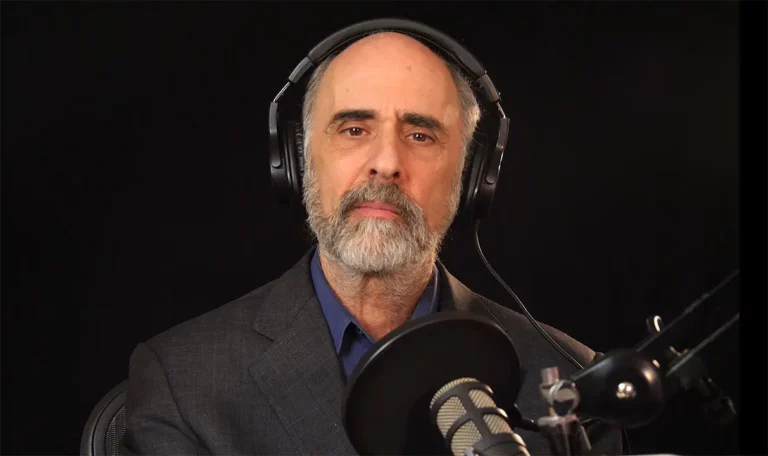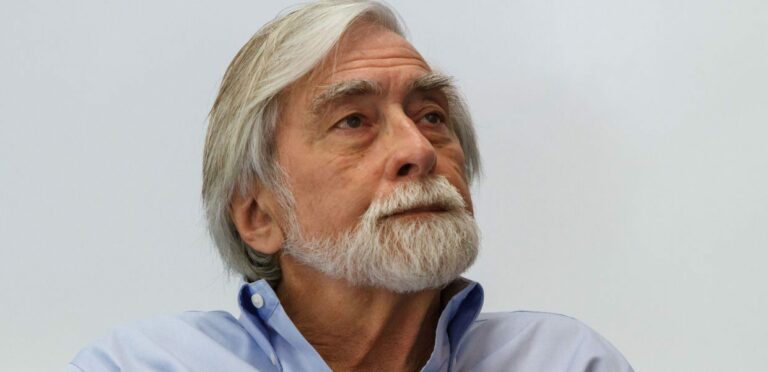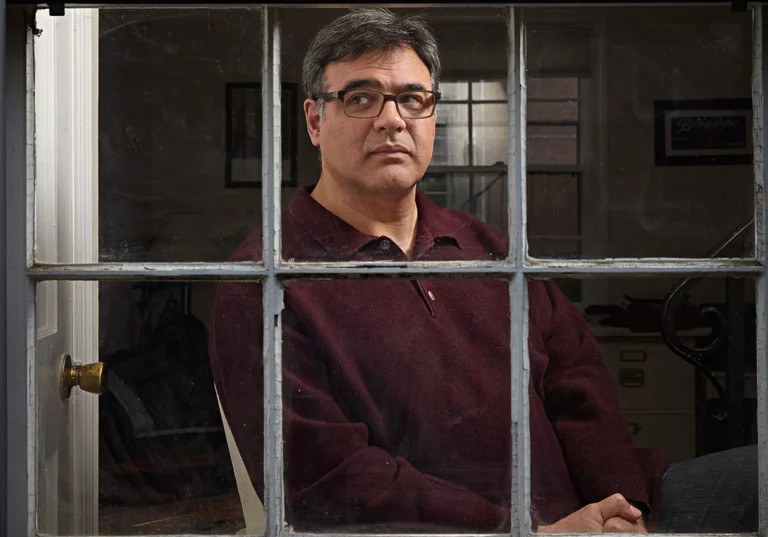From Ronald Reagan to Bernie Sanders – RAI with Thomas Frank (5/9)
On Reality Asserts Itself, Thomas Frank, author of ‘What’s the Matter with Kansas?’ and ‘Listen, Liberal,’ talks about his journey from being an enthusiastic supporter of the Vietnam War and Ronald Reagan to embracing Franklin Roosevelt and socialist Bernie Sanders. This episode was produced on September 15, 2017.
PAUL JAY: Welcome back to Reality Asserts Itself on The Real News Network, I’m Paul Jay and we’re back with Tom Frank. Thanks for joining us again. So, Tom is the author of “What’s the Matter with Kansas?”, “Listen Liberal” and if you want a longer biography, go watch the rest of the segments, and you really should anyway, because it will help you get this one. So, we’re picking up where we left off, which is you’re in college, you’re still a Republican…
THOMAS FRANK: Well, I gradually I transitioned I would say, as I was in college, away from being a Republican. I mentioned some of the things that opened my eyes, but by the time I left college, I was no longer a Republican.
PAUL JAY: But were you still, as you said in the earlier segment, an enthusiastic patriot? Would you still say the pledge with the enthusiasm?
THOMAS FRANK: We weren’t saying that by then anymore in college. How would I put this? I’ve always been patriotic. I don’t think that my views about the economy or socialism, or whatever you want to say, you mentioned Bernie Sanders. I don’t think that conflicts with patriotism in the least.
PAUL JAY: I guess that depends on how you define patriotism.
THOMAS FRANK: Yeah. I’m still a very patriotic person.
PAUL JAY: But then there’s a big division over the patriotism of your early days, which are framed…
THOMAS FRANK: I’ve never been hawkish or a militaristic. War is a dreadful, terrible, awful thing. It’s not something to be entered into lightly. That is, and the kind of, the way people use patriotism to…
PAUL JAY: But being a socialist, certainly during Cold War days was unpatriotic.
THOMAS FRANK: Yeah, a patriot in the sense that I love my country. I feel very profoundly about that, obviously. If I didn’t love my country, I wouldn’t be doing all the stuff I’m doing. That’s first and foremost.
PAUL JAY: But there’s loving the country from the point of view of loving the people of the country, and there’s loving …
THOMAS FRANK: And the history and everything else about it. But patriotism is often, I think what you’re getting at is the way it’s used to support the sort of military industrial…
PAUL JAY: Militarism, patriotism …
THOMAS FRANK: That’s awful. That’s a horrible perversion of patriotism.
PAUL JAY: During the Cold War, God gets added to the pledge. The idea of even having a loyalty oath is mostly a Cold War phenomenon. The idea you must support your government, right or wrong, you must support this Cold War. You have to hate the commies and the socialists, I mean, that’s one type of patriotism. There’s another which to my mind is mostly about love for the people of the country, not the…
THOMAS FRANK: Yeah. Of course. Absolutely. But that would, you know, the sort of militaristic, that’s always been, in my mind, that’s always been an obvious, what would you call it? It’s a scam. It’s a fraud. Always. That’s apparent.
PAUL JAY: Okay, so you’re kind of evolving out of Republican Party right or wrong, as you leave college…
THOMAS FRANK: I was always a very conscientious person. I should mention to you here, and this is something that I’ve noticed as I’ve grown older, that there are a number of people on the left wing who started out as conservatives and who believed in the promise of America, the sort of Norman Rockwell, superficial, Frank Capra promise of this country, and then realized when they became adults, that it just wasn’t true, and that there was a lot that had to be done. The person I would specifically refer to you here is Elizabeth Warren who had a very similar background to mine: grew up in Oklahoma, and was very conservative and learned at some point that this system that we have simply doesn’t deliver what it says it delivers. It doesn’t even come close. In fact, there is all sorts of fraud and monopoly and misbehavior that goes on. We all hate elites and yet elites are firmly in the saddle. Elites are more powerful today than they have ever been in our lifetimes.
PAUL JAY: When does that become acceptable thinking to you?
THOMAS FRANK: When did my eyes … While I was in college I started figuring, I started understanding that.
PAUL JAY: Because where you would have come from, they would have accused you of wanting to promote class war, which is the term they use when you start to talk like this.
THOMAS FRANK: It’s an interesting thing about that term, which is, class conflict is something you’re going to have whether you want to have it or don’t want to have it. It is a sociological, this is in the structure of society. There’s nothing you can do about it. There are going to be classes. It is to some degree natural. To some degree, class war, class animosity is a sad thing, of course, but it’s also, it’s there all the time. The way I look at it, it’s kind of like this, it’s this sentiment that’s out there in society, in the public and the trick is to appeal to it without saying you’re appealing to it. This is the sort of, this is the theme of “What’s the Matter with Kansas?”. Republicans have, and by the way Trump has perfected this: Republicans figured out, beginning in the 1970s, how to appeal to class animosity and flip it on its head, and where they would no longer be on the receiving end of it. Now you’ve got to remember, going back to the ’30s, back to the Great Depression, and even before that, Republicans are always on the receiving end of class animosity. They’re the rich, the moneybags, the fat cats, the Wall Street guys who the Democrats, you got your plain spoken guys like Harry Truman, who didn’t even go to college, who are always making fun of them. The horny-handed sons of toil are laughing at the rich guys. This, for people one generation above me or two generations above me, that’s always the way American politics unfolded. Well, in the 1970s, Republicans figured out a way to flip that entire thing on its head with this idea of the liberal elite, talking about the media, talking about college professors, all of the thing …
PAUL JAY: Part, because it’s true. It works, because it’s true.
THOMAS FRANK: In part, because it’s true.
PAUL JAY: There is a liberal elite.
THOMAS FRANK: It’s also a massive exaggeration. But, yes it is true, as I have pointed out in “Listen Liberal.” There is a, it’s not just a grain of truth to this. This has become more true as we’ve gone along. I don’t think it was right to go after McGovern that way. I don’t think that was objectively correct to go after McGovern that way. It’s, you know, Hillary Clinton out-raised Donald Trump two to one. Something has changed in those intervening 40 years.
PAUL JAY: All right, so when does the coin really drop for you? If the high school you heard this you, what would that high school student think?
THOMAS FRANK: Oh, I would have been, I think I would have been open to it. I was very interested in ideas. It’s just that what ideas are you exposed to? In the early 1980s, we weren’t exposed to all that much in public high school in Kansas City. You wouldn’t have come across ideas like this. I knew I had friends who had some exposure to stuff like this but that’s because they came from union families and stuff like that, which I didn’t understand until years later.
PAUL JAY: This would have been considered horrible talk from a real Reagan supporter.
THOMAS FRANK: Well, yeah I suppose so. By the way, Reagan himself had a transition in his own life.
PAUL JAY: In the other direction.
THOMAS FRANK: Where he… [laughs] Yes, exactly. Where he went from being, I went from being Reagan to being, to talking like Bernie Sanders. He went the other way.
PAUL JAY: He got offered a good deal. Join the Cold War, McCarthyism.
THOMAS FRANK: He was really good at it. I went to his presidential library a little while ago, and I had forgotten how smooth he was, how perfectly he internalized the sort of talking points of corporate America. He stitched together this very ideology that I’m describing, this kind of upside down populism, and really believed in it and really sold it. Really, really, really sold this thing.
PAUL JAY: All right, so here’s the question you didn’t want me to ask, and you’ll answer it however you please: You start to move more and more away from this Republican version of Americanism, you start to, at some point, entertain the idea that socialism isn’t the great enemy of mankind. What’s your father thinking about?
THOMAS FRANK: What does he think of my views?
PAUL JAY: Of where you’re heading?
THOMAS FRANK: Oh, I don’t know. He’s not a political person. You got to remember Paul, I think the vast majority of Americans do not follow politics with the same kind of hawk-eyed scrutiny that you and I do, you know?
PAUL JAY: Most people, I assume don’t follow it at all.
THOMAS FRANK: Yeah. Exactly.
PAUL JAY: Except maybe at the height of an election.
THOMAS FRANK: They go about their business, and they do their job, and they live their lives. Look, I get called a lot of names when I’m back home in Kansas, and I get called a lot of names online, and you know, that happens.
PAUL JAY: Sometimes the New York Times makes you up to be someone else.
THOMAS FRANK: Yeah, these things happen. You roll with it. I think my ideas are sound, and I think I’m a good writer. And I like what I’ve done with, you know, I’m proud of what I’ve done with my life and my talents such as they are.
PAUL JAY: So, your father not being uber-political, it doesn’t become a political argument or debate. You have your views, he has his and life goes on.
THOMAS FRANK: Exactly. Yup.
PAUL JAY: Okay. Is there …
THOMAS FRANK: People live to… Republicans and Democrats, this whole idea that we’ve self-segregated and that we can’t stand each other, I can’t help but think, I mean, maybe that is true…
PAUL JAY: I think maybe it’s more now because it used to be there wasn’t such differences. It’s far more polarized now.
THOMAS FRANK: There’s a lot of different views in families and stuff like that. It happens all the time.
PAUL JAY: Especially with Trumpism.
THOMAS FRANK: Oh man.
PAUL JAY: It’s far more polarized.
THOMAS FRANK: Yeah, yeah.
PAUL JAY: Again. is there kind of a turning point for you? A thing? You got Reagan launching his full Cold War rhetoric, and he’s got the foreign policy is a real focus.
THOMAS FRANK: Is there a single thing?
PAUL JAY: Is it the domestic Reaganism introduces, really introduces neo-liberalism?
THOMAS FRANK: Well I described, I described my exposure to the world of work, my exposure to ideas, my exposure to history. And these things were all… all really served to open my ideas to the world around me.
PAUL JAY: When do you come to the conclusion, the system itself, and I believe you’ve come to this conclusion, breeds inequality, because that’s become one of the main themes you write about.
THOMAS FRANK: Can I tell you something? You might not know this. In 1997, my colleagues and I at the Baffler Magazine put out an anthology of our, the essays that we were proudest of, and the subtitle of the book was called, “Commodify Your Dissent,” and the subtitle of it was, it has the phrase, something in the New Gilded Age. This was in 1997. We were some of the first, I think we, I’ve looked it up. Other people used that phrase before we did, but we were the first ones to put it in a book title, in the New Gilded Age. It was essays for this New Gilded Age we were living through. I’ve always been historically minded. For me, when they deregulated the banks, when Reagan clearly was, Reagan started the great bank deregulation project. Clinton really advanced the ball on that one, but when it began under Reagan and the great stock market boom began in the 1980s, and really has never … Well, then you had the … Anyhow, it began in the 1980s. You could, and the destruction of organized labor at the same time, of course, PATCO and all the things that came in the wake of that, and the free trade agreements. It was very obvious to me, and I think it should have been obvious to everyone, that we were setting out on a straight shot towards the sort of pre-Depression America, 1920s style America, Gilded Age style America.
PAUL JAY: Pre-New Deal.
THOMAS FRANK: Yes. That was clearly where we were headed. Now, those ideas were in the air at the time but it wasn’t, we talked about this in an earlier segment, that it wasn’t until Bill Clinton came along that the Democratic Party itself basically said goodbye to the New Deal. This was now an unattainable thing, and we shouldn’t even be trying to, social equality was something that we shouldn’t even be aiming for in this country anymore, we needed to say goodbye to that and so, by 1997, that was obvious to me that we were on our way to, we were in a new Gilded Age. It was also, you might remember the media climate of the 1990s, talking about a new economy. That there were completely new economic rules guiding how buying and selling and how the acts of exchange …
PAUL JAY: And it would relieve poverty around the world.
THOMAS FRANK: Yes. That there would never again be a downturn. We were in the long boom. Dow 36,000. Do you remember this crap?
PAUL JAY: Yeah.
THOMAS FRANK: Part of my job as a scoffer, as the H. L. Mencken of my time was to constantly be puncturing this idiocy. So I took to that task with relish, but part of that was seeing the historical…this was so obviously a replay of the mania and the enthusiasm from the 1920s where they said exactly the same thing. They said everybody is going to be rich because of mutual funds. They were repeating this like word for word almost in the 1990s. For someone who studied history, this was, this was obvious what was going on.
PAUL JAY: Yeah, they had the line from Wall Street, “Greed is Good,” but the Clinton version of that was…
THOMAS FRANK: The Clinton version was much more…
PAUL JAY: Should be bubbles are good.
THOMAS FRANK: Yeah, but the new economy period in the late ’90s, that was, that was something much, that was much more disturbing than the “Greed is Good” 1980s because in the 1990s, it was like that this is a boom that will make everyone rich. This is a boom that will never end. This is a boom that will bring about, that will raise up the feeblest and the weakest among us. This is a democratic boom. It was such fatuity, you know? Such incredible folly.
PAUL JAY: All right, we only got a few minutes left. I know you got to go, and I’m hoping we’re going to pick this up again.
THOMAS FRANK: Everyone loves to hear, the 1990s man, I can talk about the 1990s forever.
PAUL JAY: Well let’s … can you stay?
THOMAS FRANK: No, no, no, I got to go home. I got to go home.
PAUL JAY: All right, well we will I hope have a chance to do the 1990s.
THOMAS FRANK: We’ll come back and do that, yeah.
PAUL JAY: But let me just end up by getting us back to the moment we’re in. How dangerous do you think the moment we are in is? What do you think people should do about it?
THOMAS FRANK: I thought it was, on election night and a few weeks after that, I was very afraid. I have a family. I’m, obviously, deeply concerned for the future of this country. I love this country. I was very worried about Donald Trump becoming president. You know what’s made me feel relieved? Is to learn how incompetent he really is. This guy, he’s got a Republican Congress. He still can’t get anything done. That’s a huge, enormous relief for me.
PAUL JAY: For now.
THOMAS FRANK: For now. Right. No, there’s still… He could screw up foreign policy so easily because the president has so much…
PAUL JAY: As I said earlier, Pence is in the wings.
THOMAS FRANK: Look, like I said, the next Trump is going to be much worse than this Trump. The next one, what Trump proved again, is how to beat the Democratic Party. Until the day the Democratic Party takes a long cold look in the mirror, and understands where they have gone wrong, and by the way, I’m ready. The minute they want to have me come and talk to them about it, I’m ready to do it.
PAUL JAY: But as you said, they got a vested interest in …
THOMAS FRANK: Yeah, they’re not interested in that.
PAUL JAY: They got a vested interest in not seeing that.
THOMAS FRANK: In never seeing that, exactly. In never taking that long look in the mirror. But the day they do, they will start to understand what they have done, and they will also start to understand how to defeat these guys. This is a long… Remember now, if you take one thing away from this, this is a long process. This is not Trump. This goes back to Nixon. This goes back to Reagan. This goes back to Wallace.
PAUL JAY: It goes back to financialization of the whole economy.
THOMAS FRANK: Yes, it does. I mean, the strategy that Trump used: the fake populism that Trump used. This is deep in the… this is a strategy invented years ago. And by the way, the string that the Democrats are playing out also goes back to that same period in the late ’60s and early ’70s when they decided they weren’t going to be a party of working class people anymore, and they weren’t going to be interested in the New Deal anymore. They were going to be a very different party. A party of the information economy, the postIndustrial economy. They made an incredible blunder at that time and they’ve never looked back. They’ve never questioned that blunder, and until the day they do.
PAUL JAY: When I say how dangerous a moment, it’s only partially about Trump. When you add climate change into the equation …
THOMAS FRANK: Yes. And our inability to act.
PAUL JAY: There’s kind of no time for the normal long-term process.
THOMAS FRANK: If you really want to end on a depressing note, Paul, just a short time ago, I for one, felt like we had the answers within our grasp. Barack Obama, 2008. Here he comes. These enormous crowds. He’s so smart. I had met him. I lived in Hyde Park, his neighborhood in Chicago. He was my state senator. I admired that man. I wanted him to be great. I thought he was going to be great. I looked at him and I thought, I saw Franklin Roosevelt. I thought this is the Franklin Roosevelt for our time. Here comes the right man at the right moment with the right ideas, and it didn’t happen. He had the power and he had the people behind him. He had the world behind him and it didn’t happen. That is, I think that is in a way far more depressing than Donald Trump. That we had the man, and we had the energy and we had the ideas, and it… I don’t want to say we blew it because I don’t feel like we did. But yeah, our side blew it.
PAUL JAY: Maybe the thing that hopefully won’t be so depressing, and 2020 I think is going to be the most decisive election in the history of the country. If the broad majority of people who had that feeling about Obama learn the lesson, and learned “Listen Liberal”, learned the lesson, because maybe then that can be a turning point.
THOMAS FRANK: But we’re all, of course we’re all…
PAUL JAY: If people drink the Kool-Aid again…
THOMAS FRANK: We’re all prisoners of, I mean now we’re in the aftermath of that sort of golden moment of 2008, 2009, and we’re prisoners of our hope that we had for Barack Obama, and we don’t want to let that go. Other people have watched their way of life slip away. Everything has gotten worse. Inequality is out of control. Other people have gone for Trump. Trump is like this sort of Obama through the looking glass, promising a sort of curdled hope, a kind of resentment and outrage, but appealing to a lot of the same people, a lot of the same emotions. We’re in the backwash of hope now. It’s going to take, it’s going to take something, an extraordinary effort to pull that off again. I don’t know if the world will go along with that. I mean, you can have heroic individuals here and there, Bernie Sanders, but Barack Obama, you had the heroic individual, but you also had history cooperating in a financial crisis that gave him that moment of possibility, and that’s not going to happen again. Or it might happen again, and instead put the power in the hands of a completely different kind of individual. I’m sorry, I should never end on a note like this, but I think to be realistic about where we are, you have to look this thing in the face.
PAUL JAY: You got to.
THOMAS FRANK: That’s what happened to us.
PAUL JAY: Because you can’t, we can’t keep living our lives as if it’s all normal. You can’t keep doing business as if it’s all normal. We ain’t in a normal moment of history. There were moments like this before but never so existential.
THOMAS FRANK: There’s another problem, is that we can’t be critical. Democrats love to imagine that they’re the party of intellect, and the party of discernment and learning, and that they can see through, they can pierce the veil and they can see through the phoniness. But we have tremendous problems turning our scrutiny on the Obama period and on what happened. That’s what I tried to do in “Listen Liberal.” I invite your viewers to read it. It’s a first step in a process that has to happen.
PAUL JAY: Well I hope you’ll be back. We’ll do the ’90s. We’ll do the Obama years.
THOMAS FRANK: I’d love to. Don’t forget George W. Bush and the wrecking crew.
PAUL JAY: All right. Thanks for joining us.
THOMAS FRANK: You got it man. Any time.
PAUL JAY: Great. To be continued. Thanks very much for joining us on Reality Asserts Itself on The Real News Network. Please join us and we’ll be doing more of this. Thank you again.
Thomas Carr Frank is an American political analyst, historian, and journalist. He co-founded and edited The Baffler magazine. Frank is the author of the books What’s the Matter with Kansas? and Listen, Liberal, among others. From 2008 to 2010 he wrote “The Tilting Yard”, a column in The Wall Street Journal.
